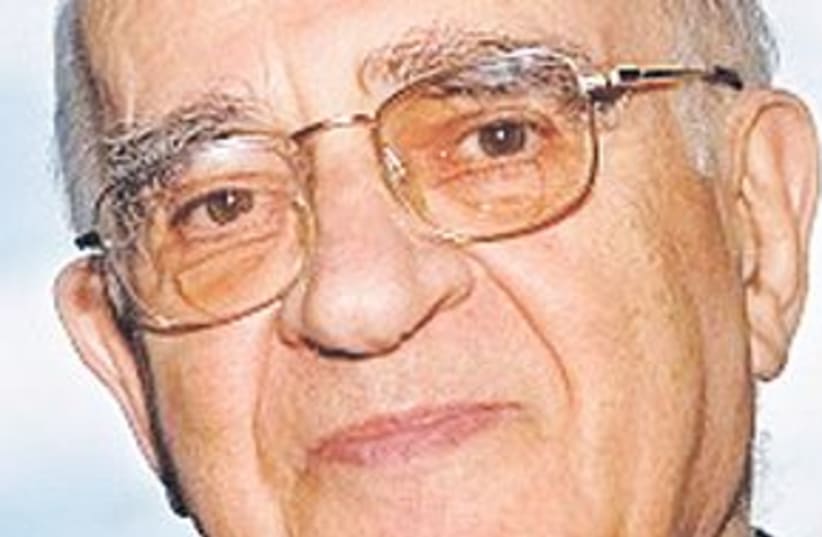RELATED:'NY judge allows Schindler's original list to be sold'The fight for Schindler's listDuring his imprisonment in the Plaszow concentration camp, Pemper served as the personal typist of Nazi commandant Amon Goeth, from 1943 to 1944.At one point, he secretly read a letter sent to Goeth from Berlin announcing that all factories not producing goods for the Nazi-war effort would be closed down. Pemper was subsequently able to convince Schindler, a Nazi-party member – who initially hoped to profit from the Germany’s invasion of Poland – to switch his plant’s focus from enamel production to anti-tank grenade rifles.Pemper then, at great personal risk, gave Schindler a typed list of more than 1,000 fellow prisoners who could work in the plant.Schindler famously saved more than 1,200 lives through a mixture of work opportunities and bribes to Nazi officers.Though he died in anonymity in 1974, Schindler’s story was famously adapted by director Steven Spielberg in the 1993 film Schindler’s List, which won seven Academy Awards, including Best Picture and Best Director.Pemper served as a consultant on the film, and in 2005 published his memoir, The Road to Rescue: The Untold Story of Schindler's List.In the book, Pemper pondered what the world would have been like if there had been no war, or Nazi extermination effort.“Goeth would probably not have been a mass murderer, nor Schindler a saver of lives. It was only the extraordinary circumstances of war and the immense power granted to individual men that revealed the nature of these men to such an impressive and terrifying degree,” he wrote. “Fate had placed me between the two of them, and it was like having an angel on one side and a demon on the other.”
German man who typed ‘Schindler’s List’ dies at 91
Mietek Pemper was responsible for typing famous list that saved 1,000 Jews during Holocaust; will be buried in Jewish cemetery in Germany.

RELATED:'NY judge allows Schindler's original list to be sold'The fight for Schindler's listDuring his imprisonment in the Plaszow concentration camp, Pemper served as the personal typist of Nazi commandant Amon Goeth, from 1943 to 1944.At one point, he secretly read a letter sent to Goeth from Berlin announcing that all factories not producing goods for the Nazi-war effort would be closed down. Pemper was subsequently able to convince Schindler, a Nazi-party member – who initially hoped to profit from the Germany’s invasion of Poland – to switch his plant’s focus from enamel production to anti-tank grenade rifles.Pemper then, at great personal risk, gave Schindler a typed list of more than 1,000 fellow prisoners who could work in the plant.Schindler famously saved more than 1,200 lives through a mixture of work opportunities and bribes to Nazi officers.Though he died in anonymity in 1974, Schindler’s story was famously adapted by director Steven Spielberg in the 1993 film Schindler’s List, which won seven Academy Awards, including Best Picture and Best Director.Pemper served as a consultant on the film, and in 2005 published his memoir, The Road to Rescue: The Untold Story of Schindler's List.In the book, Pemper pondered what the world would have been like if there had been no war, or Nazi extermination effort.“Goeth would probably not have been a mass murderer, nor Schindler a saver of lives. It was only the extraordinary circumstances of war and the immense power granted to individual men that revealed the nature of these men to such an impressive and terrifying degree,” he wrote. “Fate had placed me between the two of them, and it was like having an angel on one side and a demon on the other.”